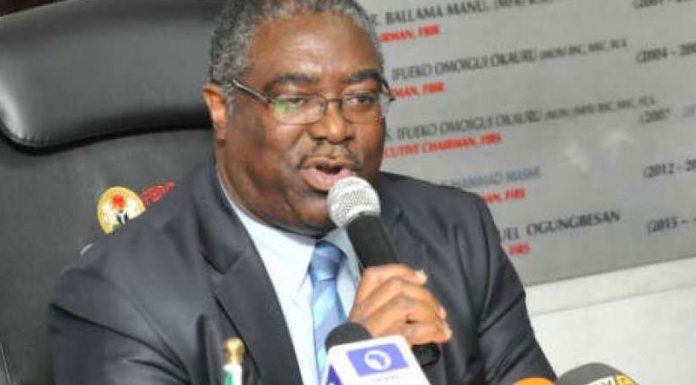The Executive Chairman of the Federal Inland Revenue Service (FIRS), Mr Babatunde Fowler, on Wednesday disclosed that the revenue agency had generated N5 trillion as at the second week of December 2018.
Fowler who gave this hint in a statement projected that the Service would have raised its revenue collections to about N5.3 trillion.
He stated that “if the FIRS pools N5.3 trillion revenue, that will be the highest revenue ever generated by FIRS in history. The highest in FIRS history is N5.07 trillion generated in 2012.”
Fowler described the Service’s revenue generation of N5 trillion as significant at a period when oil prices oscillated between $50 and $70 per barrel as against the average of $100 to $120 per barrel between 2010 and 2013.
Speaking at the induction of new members of the Joint Tax Board (JTB) in Abuja on the performance of the agency, Fowler stated that FIRS had been able to record significant achievements as a result of support from the Presidency, Ministry of Finance, the JTB and other taxation stakeholders.
He stated: “This year, the FIRS, with the support of the Presidency, Ministry of Finance, the JTB and other stakeholders, had been able to generate up to N5tn. We believe that we should be able to close at least at N5.3tn which should be the highest in the history of the FIRS.
“And we believe that with that additional revenue, the state and federal governments would be able to provide more services and more development to the people of Nigeria”, the FIRS boss added.
He charged the new inductees to JTB to equip themselves with new ideas and embrace the Information and Communications Technology (ICT) to enable them technically sound in the reality of revenue collection in the ever-changing society.
Fowler said: “I see it as a privilege to be addressing this class of inductees today as history has chosen you at this critical point in time in our nation’s development to steer the ship of sustainable revenue generation.
“While preparing for this occasion, I came across an observation by the American inventor and author, Ray Kurzweil, where he noted that the rate of scientific and technological change is exponential rather than linear. This observation presupposes that the better part of applied wisdom requires that in our journey of life, we are capable of identifying the most apt moment to know at what point to adapt to the ever-tumultuous sea that modern existence represents.
“It also indicates that we should be able to develop the ability to accept and embrace positive change, maybe due to the fact that change is inevitable, but more significantly that oftentimes, change presents us with the rare breaks that we can exploit to advance individual and collective goals and objectives.” he added.
The seasoned tax administrator pointed out that as global society continued to transform in structure and process, particularly with new technologies and ways of doing things defining the future of business, the role before tax administrators in an emerging economy such as Nigeria remained enormous.






